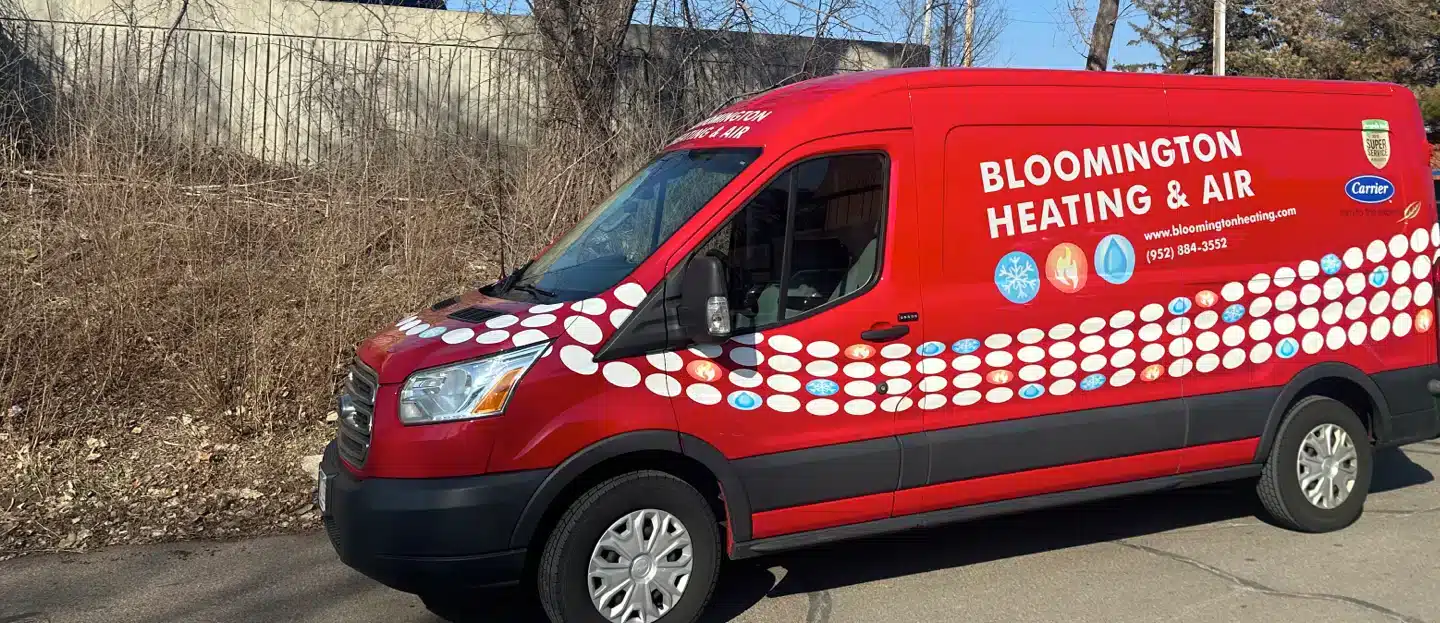
24/7 Emergency Phone Line
Family Owned & Operated
Licensed, Bonded & Insured
There’s no doubt about it — air purifiers increase indoor air quality and reduce allergens. However, suppose you’re looking for the best solution for your particular home and needs. How do you decide between a whole house air purifier or multiple room purifiers? Choosing might seem overwhelming, especially given all the information available online for homeowners.
To help you make an informed decision, the HVAC experts with Bloomington Heating & Air have reviewed both types of air purifiers, comparing their pros and cons.
Ready to decide? Contact us today for more information regarding our HVAC services.
Whole House Air Purifier
To begin with, it’s important to understand the types of whole house air purifiers available on the market. Different varieties will have different price points and effectiveness ratings.
- Filter-based. These are typically installed as part of the HVAC unit and air intake points.
- Duct-based. These are installed in the air ducts, either before or after the air handler.
- Stand-alone systems. These are usually installed in a closet or attic. They require installing additional air intakes and exhausts.
The type of filtration used can also vary between two types: physical barriers and ion filtration. Physical barriers use a more conventional filter to trap particles, while an electronic (or ion) filter utilizes a high-voltage charge to attract and capture particles. Some air systems use a hybrid of both. Ultraviolet (UV) filters are also an option, especially for homes where medical concerns require a higher degree of germ elimination.
Pros
Filtering the air throughout your entire house is particularly useful for people who have special medical needs or extreme allergies.
- Every room in the house has less air pollutants.
- The system is discreetly installed into the ductwork.
- Generally quiet.
- Needs little maintenance once it is installed.
- Suitable for homes with pets that have access to the whole house.
- Can be helpful for people with allergies who don’t want to be confined to a single room.
Cons
Whole house air filtration offers a thorough solution for indoor air quality, but the lack of options and higher costs might be a dealbreaker for some.
- Doesn’t filter smaller particles due to the need for airflow.
- Requires an HVAC technician for installation.
- Has a higher initial cost.
- Higher energy consumption.
- Inconsistent performance based on the home’s ductwork.
- Dirty ducts can limit the effectiveness of HVAC units.
- Can be expensive to maintain and regularly change filters.
Single Room Air Purifier

Most single room air purifiers use HEPA (high-efficiency particulate air) air filters to filter out more particles as compared to whole house purifiers. Some also use the more advanced ULPA (ultra-low penetration air), which can block out even smaller particles than HEPA filters but are limited to smaller areas due to airflow. Ion units are also available, which are quieter and do not require filter replacements. However, note that ion filters may create trace amounts of ozone (a lung irritant) as a byproduct.
Pros
While it may seem counterintuitive to think that a small, single unit can be more powerful than a larger one, single room air purifiers can pack an air-cleaning punch in a specified zone.
- Lower initial cost.
- Portable.
- Easy to use and most units can be installed by the buyer.
- Doesn’t require central air conditioning, ducts, or attics for installation.
- Higher rate of effectiveness.
- Lower energy consumption.
Cons
Single unit air purifiers are great for thoroughly cleaning the air in a particular room. However, that same air can be contaminated by particles from other rooms. Other drawbacks include:
- Needs to be running continuously for optimal results.
- Requires multiple units to accommodate for a larger space or additional rooms.
- Filters can be expensive to change frequently.
- Only filters a specific volume of air, so you’ll need to know this information before purchasing a unit for a particular room.
While single room air purifiers offer higher efficiency, if you or a loved one suffers from severe allergies or medical conditions, investing in both options can help keep your indoor air cleaner and more comfortable to breathe.
